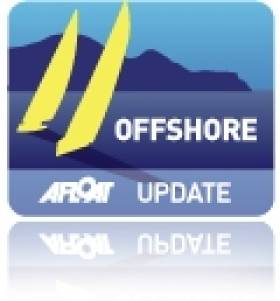Displaying items by tag: Gamesa
Dubois, who also partnered Mike in the 2007 Transat Jacques Vabre, will join him once again for the legendary French race from Le Havre, France to Puerto Limon, Costa Rica.
Golding, who recently signed a two year sponsorship agreement with Gamesa, a global wind power technology leader, has been overseeing a major optimisation of the yacht that will be dedicated by HRH The Princess Royal at the Southampton Boat Show on Tuesday 20 September 2011.
This will be Golding's seventh consecutive participation in the double-handed Jacques Vabre Race which takes place every two years and is considered the first major event in the Vendée Globe preparation cycle.
"Bruno and I have known each other for many years and I trust him completely as co-skipper on this my first race for Gamesa. As our sailmaker, Bruno and his team at North Sails France provide the real "engines" for Gamesa by providing hi-performance sails that are 'at the same time' fast, efficient and yet strong enough to race around the world. He has a totally unique perspective and knowledge, which I value greatly. As our unofficial 'sail coordinator' his knowledge of the boat and my style of sailing will have a direct impact on our potential in the Vendée Globe."
Always in the upper rankings and many times on the podium, a win in the Transat Jacques Vabre race has eluded Golding. "Clearly we are competing against some new boats this year plus we have been away from the IMOCA circuit for the past two years – however I remain confident that with our newly optimised boat and our combined experience onboard we will be a serious contender for a win in 2011." commented Golding earlier today.
Dubois, who is the Managing Director of North Sails France, commented, "It is a great pleasure for me to sail with Mike again. We have done many races together over the past 10 years including the 2007 TJV. We know each other quite well and do not have much work to do to get along on an IMOCA 60."





























































